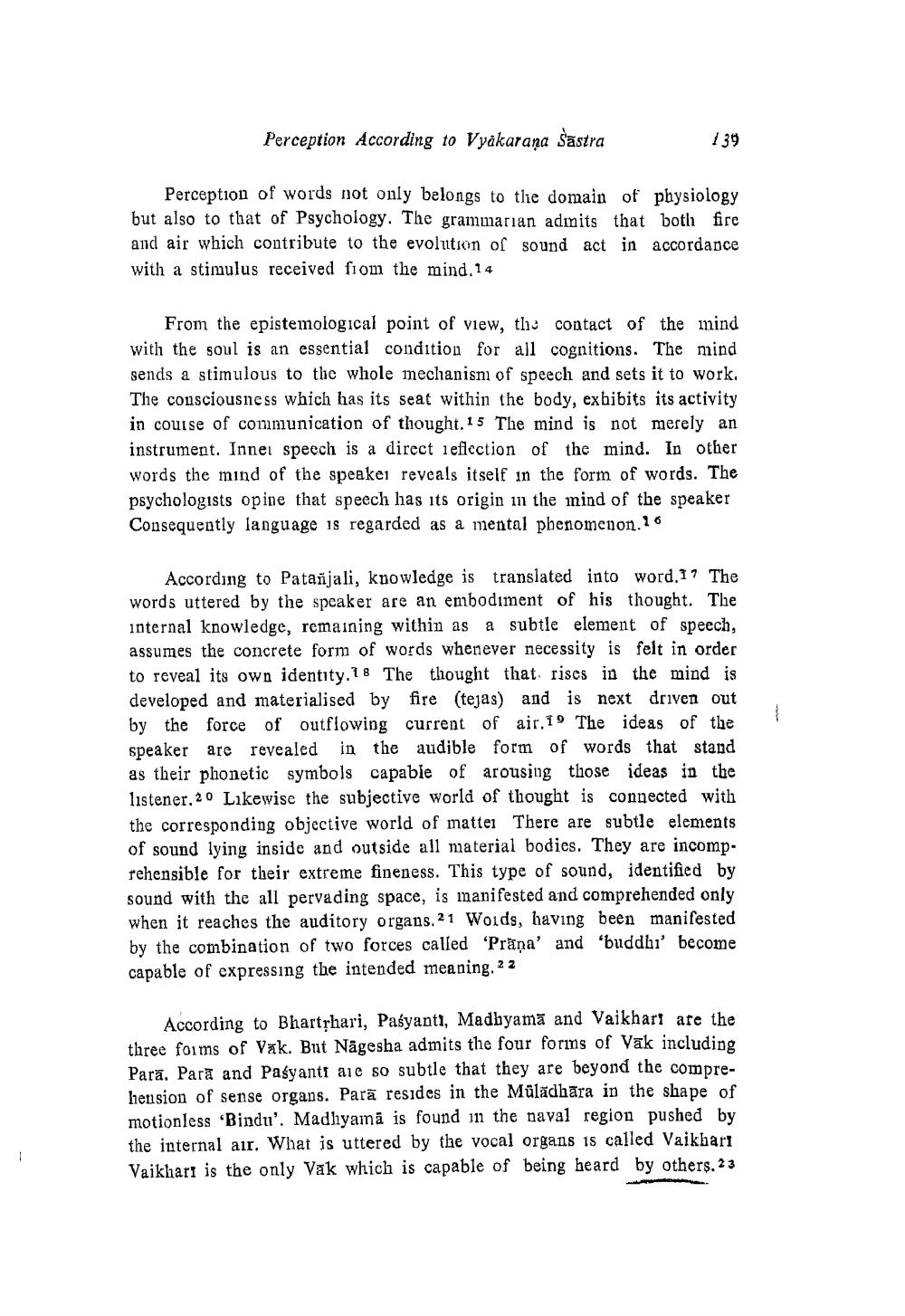________________
Perception According to Vyakarana Šāstra
139
Perception of words not only belongs to the domain of physiology but also to that of Psychology. The grammarian admits that both fire and air which contribute to the evolution of sound act in accordance with a stimulus received from the mind. 14
From the epistemological point of view, the contact of the mind with the soul is an essential condition for all cognitions. The mind sends a stimulous to the whole mechanism of speech and sets it to work. The consciousness which has its seat within the body, exbibits its activity in course of communication of thought. 15 The mind is not merely an instrument. Innei speech is a direct eflcction of the mind. In other words the mind of the speaker reveals itself in the form of words. The psychologists opine that speech has its origin in the mind of the speaker Consequently language is regarded as a mental phenomenon.10
According to Patañjali, knowledge is translated into word. 17 The words uttered by the speaker are an embodiment of his thought. The internal knowledge, remaining within as a subtle element of speech, assumes the concrete form of words whenever necessity is felt in order to reveal its own identity.18 The thought that rises in the mind is developed and materialised by fire (tejas) and is next driven out by the force of outflowing current of air.19 The ideas of the speaker are revealed in the audible form of words that stand as their phonetic symbols capable of arousing those ideas in the listener.20 Likewise the subjective world of thought is connected with the corresponding objective world of mattei There are subtle elements of sound lying inside and outside all material bodies. They are incomprehensible for their extreme fineness. This type of sound, identified by sound with the all pervading space, is inanifested and comprehended only when it reaches the auditory organs. 21 Words, having been manifested by the combination of two forces called 'Prāņa' and 'buddhi' become capable of expressing the intended meaning, 2 2
According to Bhartphari, Paśyanti, Madhyamā and Vaikhart are the three forms of Vak. But Nagesha admits the four forms of Vak including Parā. Para and Pasyanti aie so subtle that they are beyond the comprehension of sense organs. Parā resides in the Mülādbāra in the shape of motionless ‘Bindu'. Madhyamā is found in the naval region pushed by the internal air. What is uttered by the vocal organs is called Vaikharı Vaikhart is the only Vak which is capable of being heard by others. 23




